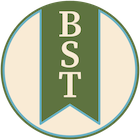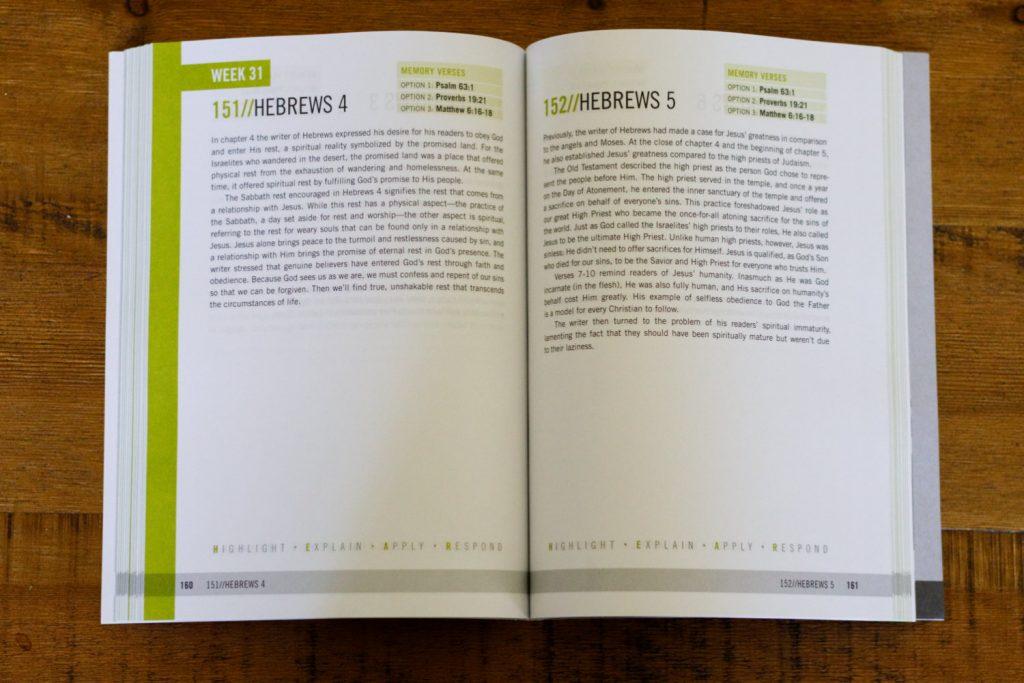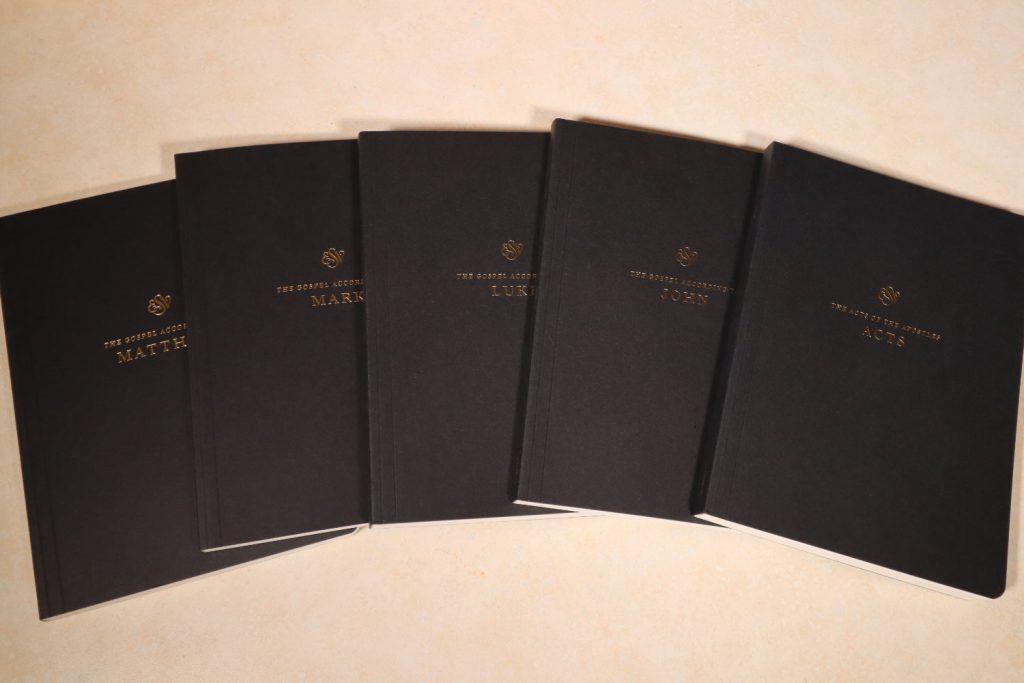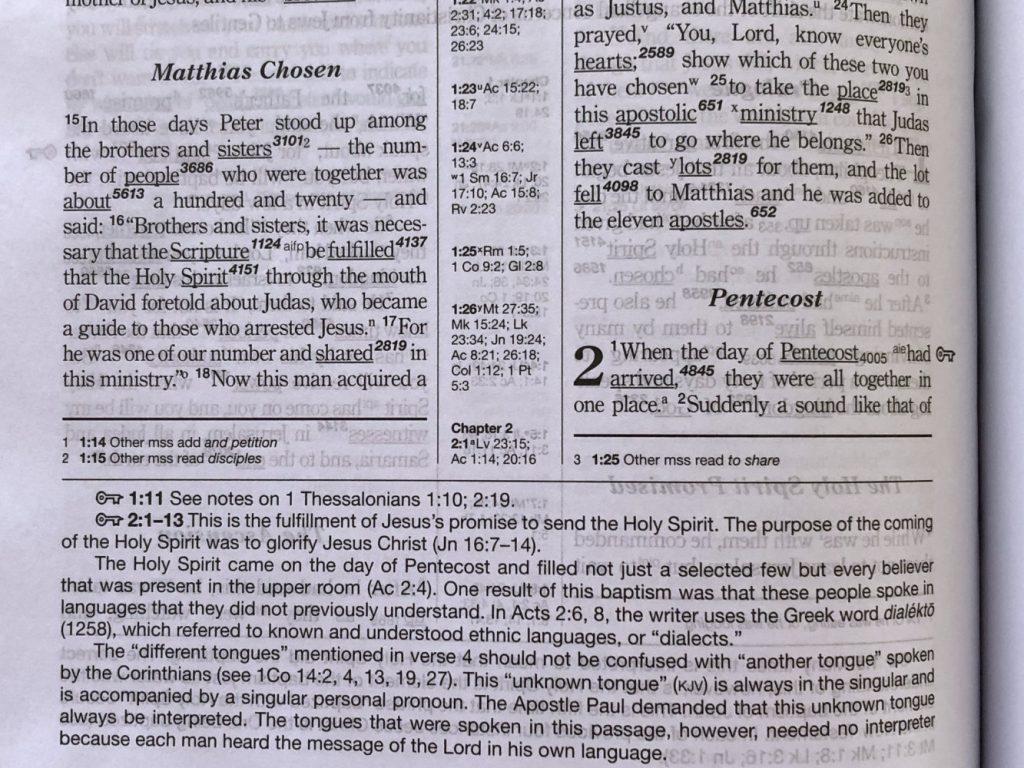Every year, Christians across the globe set out to read the entire Bible in a year. It’s a worthy goal to have, but many of those same Christians find themselves falling off the proverbial wagon a month or two into the plan. Once they get past the excitement & action of Genesis & Exodus, these readers find themselves bogged down in the doldrum that many like to call Leviticus and Numbers. Much like gym memberships, they skyrocket in January, but by February the gym is back to its regular attendees.
Our time in God’s Word should be different. Why set lofty goal that may never be reached? Wouldn’t a goal that’s more attainable make more sense? Like, if you’ve never read the Bible before, why not try to read the entirety of the New Testament? It’s about a third of the size of the Old Testament and doesn’t require nearly as much effort to complete. This is where the new resource from Replicate Ministries comes into play. Their newly released Foundations New Testament is here to help you read the New Testament in 52-weeks.
This week I want to introduce you to this incredible resource and show you how the Foundations New Testament can help you do two things in the new year: 1) read the New Testament, and 2) memorize the Sermon on the Mount. Keep reading to find out how!
The Original Foundations
It was about a year ago when I was first introduced to Replicate Ministries & Robby Gallaty by my good friend Coby Munsey. Through this introduction I became acquainted with the Foundations devotional and the F-260 Bible reading plan.
The goal of the original Foundations plan is to walk you through the entire metanarrative of Scripture over the course of a year. You read the Bible from Genesis to Revelation, but you only hit the highlights and most important passages of Scripture. By the end of the year, you’ve read a good portion of the Bible and have a solid understanding of its overarching narrative.
Why 260? It’s pretty simple. There are 52 weeks in a year, and if you read the Bible 5 days a week, that equals 260 days of Bible reading. The weekends are intentionally left as off days so you can rest or use them to catch up if you miss a day or two during the week.
Included in this plan is also a plan for memorizing Scripture throughout the year.
Personally, I have found the Foundations devotional and F-260 plan to be a helpful resource, both for personal Bible reading and discipleship.
What is the Foundations New Testament?
If the original Foundations plan is so good, why do something different? After many years of going through the regular F-260 plan, the Replicate team wanted to offer people something different, especially for those who use it regularly in a discipleship context. At the same time, there are also those who are intimidated by the thought of reading so much of the Bible and even two to three chapters a day proved a bit much. Well, reading through the New Testament in a year is a much more manageable endeavor.
So, what makes the Foundations New Testament so different? Well, the concept is exactly the same, but the daily Bible reading is different. You’re still reading 5 days a week for 52 weeks for a total of 260 days of reading. The difference is this: you’re reading one chapter of the New Testament every single day for those 260 days. That’s it! That’s the difference.
But here’s the kicker. Did you know there are 260 chapters in the New Testament? So by reading a single chapter a day, by the end of the year you will have read the entire New Testament!
Foundations NT helps you read the entire New Testament in a year. @RGallaty @ReplicateMin Share on XNow, you might be wondering, will you just read the New Testament straight through from Matthew to Revelation. The answer? No. You will read the books chronologically. The readings start in Luke and then you move to the books of Acts. Then, as you’re reading Acts, you will read the epistles as they occur in the narrative. What about the other 3 gospels? You will read the remaining gospels once a quarter, which keeps Jesus at the center.
One thing to like about the Foundations New Testament is that the book also provides a devotional summary for each day’s reading. This means, even if you don’t quite understand what you’ve read, the Replicate team will summarize the passage for you and highlight what is most important in the text.
In addition to the Bible reading & devotional aspect, there are additional pieces to using the Foundations New Testament resource: journaling and Scripture memory.
H.E.A.R. Journaling
If you want to remember what you read in Scripture you need to write it down. This is why the Replicate Ministries team encourages journaling as an important part of the Bible study process. To make the journaling process easy, they developed the H.E.A.R. Journaling method. Journaling the Bible in this way facilitates both understanding and application. As you read and go through the steps you will know what the Bible says and how God wants you to respond.
H.E.A.R. stands for Highlight, Explain, Apply, and Respond. Each step in the process allows you to digest what you’ve read while letting God speak directly to your spirit. The H.E.A.R. method helps you hear from God.
Highlight
The first step in the process involves writing down three things:
- The book and passage you’re reading
- A verse or two that stood out during your reading
- A title for the passage you read that will help you remember it
Explain
The next step requires some work and diligent digging. It is here that you want to answer questions like:
- Who wrote the passage?
- Who is the audience?
- Why was this book written?
- How does this passage fit with the rest of the book and the Bible as a whole?
The goal of this step is to help you understand the meaning of the text and how it would have been understood by its original hearers. This steps moves you in the direction of making application from the text.
Apply
Once you understand the meaning of the passage, the next step is to apply it to your life. This involves asking questions like:
- What does this passage mean today?
- What does this verse look like in my life?
- Is there anything in this passage God wants me to do?
- How can it help me?
As you answer these questions you should be able to write down a few sentences about how God is speaking to you through the passage.
Respond
The last step in the H.E.A.R. journaling method is putting action behind your reading. This can be either a clear action step you need to take after reading a passage, or it can be a prayer to God. No matter what the action is, you should respond to the passage in some way.
H.E.A.R. stands for Highlight, Explain, Apply, and Respond. @RGallaty @ReplicateMin Share on XMemorize the Sermon on the Mount
The final component to the F-260 reading plan is Scripture memorization. This discipline is vital to Bible study and spiritual growth. Along with your daily readings, each week you are expected to memorize Bible verses.
The Foundations New Testament takes a different approach than its predecessor. The original version allowed you to memorize one or two passages a week, depending on your level of ambition. This time, the Foundations New Testament offers you a choice between three different passages each week. You choose to memorize a passage from Psalms or Proverbs, or you can take on the challenge of memorizing the entire Sermon on the Mount in a year. Additionally, you can mix it up and memorize some combination of those options.
It might sound daunting to say you’re going to memorize the entire Sermon on the Mount, but it’s not difficult if you break it down into bitesize portions. F-260 does this by only giving you two verses to memorize each week. And if you keep it up, by the end of the year you’ll have the entire passage memorized, which is Matthew 5-7.
As we discussed in a previous Bible study tip, there are many tools available for memorizing Scripture. You just have to pick the method that works best for your learning style.
The goal of Scripture memory with F-260 is to not just read the Word, but to internalize and make it part of your being. If you’re going to have the right word at the right time, battle sin, and renew your mind, then Scripture memory must be a part of your life. Disciples know God’s Word.
Disciples know God's Word Share on XOther Ways to Use Foundations & F-260
The Foundations New Testament, in and of itself, is a straightforward way to study God’s Word. You read a chapter a day, journal about it, and memorize Scripture each week. But, if you want to dig deeper, Replicate has produced additional resources that accompany the F-260 Bible reading plan.
First is the original Foundations devotional journal. If you want to go through it with your kids or teen, there are versions available for them as well.
Another resource is the CSB Disciple’s Study Bible. This study Bible combines the original F-260 Bible reading plan, the Foundations journal, and throws in a lot more! You also get book introductions & outlines, study notes, and discipleship articles. This is an all-in-one resource for the disciplemaker who wants to dig into the F-260 plan or go through it with others.
Plus, iOS and Android apps are also apps available for download. The F-260 Bible reading plan can also be found in the Bible app from YouVersion. Find out more by clicking here.
Your Plan for the New Year
How will you study God’s Word in the new year? Do you have a plan that sets you up to accomplish your goals? If you’ve never read the New Testament in its entirety, I heartily recommend picking up Robby Gallaty’s Foundations New Testament & making it a part of your Bible study. You won’t be disappointed.
Weekly Study Prompts
This week, meditate and journal on the following passages:
- Monday – Romans 7-8
- Tuesday – Romans 9-10
- Wednesday – Romans 11-12
- Thursday – Romans 13-14
- Friday – Romans 15-16
- Memory Verses: Romans 8:1; 12:1-2
Free Bible Study eBook
Click the button below to get a free copy of our "Bible Study Blitz" ebook that will give you 5 tips to enhance your Bible study.






